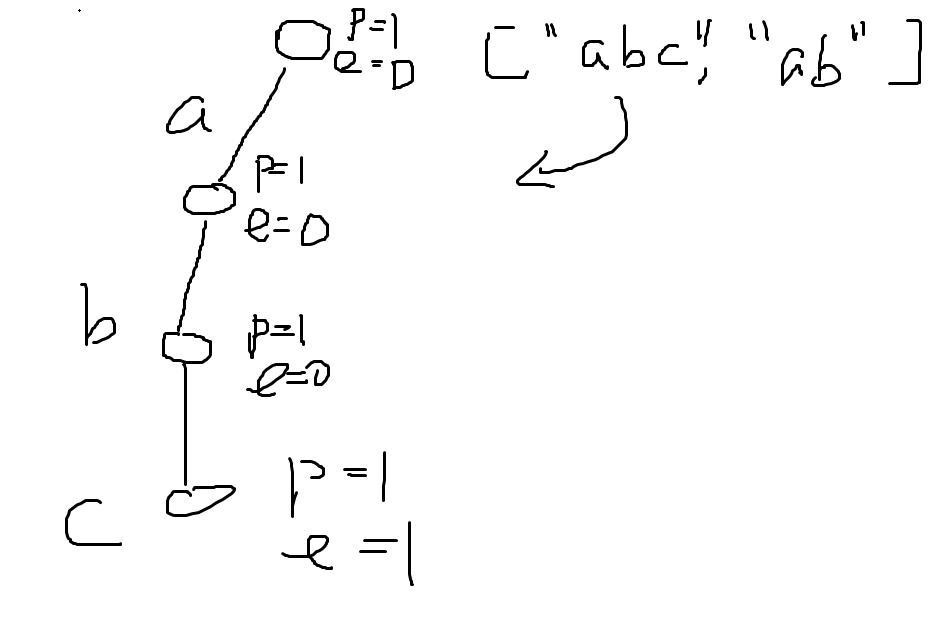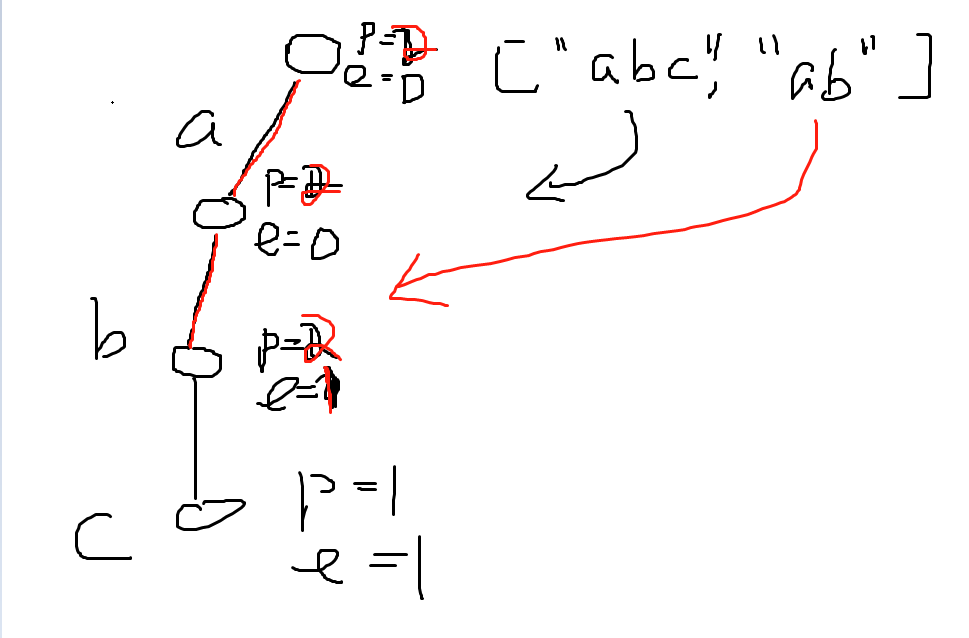空间换时间,是一种用于快速查询的多叉树结构,利用字符串的公共前缀来降低时间
优点:查询效率高,减少字符比较
缺点:内存消耗较大
每次都会从头向下一直到字符串结尾
1 单个字符串从前到后加到一棵多叉树上
2 每隔字符串都会有自己所在节点的两个属性path和end,path代表经过,end代表这个字符结尾
3 所有的插入操作都是一样的插入方式,有就复用没有就新开辟一条路
4 经过节点path += 1 ;每个字符串结尾 end += 1
5 可以快速查询前缀和完全匹配的数量
如图所示 我们插入第一个字符串“abc”,从a开始,没有a就开辟一个a的路把经过的地方都标记path += 1

结果相同方式遍历b和c,最后c结果end +=1

相同的方式插入ab,每次都会从头开始第一个起始点path += 1,a存在a的path += 1,b也存在b的path +=1 ,b是结尾所以b的end +=1

两种方式实现,第一种会用列表来储存,一种会用字典来储存
实现方式都一样,看会一种即可。
第一种
class Trie: def __init__(self): """ Initialize your data structure here. """ self.children = [None] * 26 self.path = 0 self.isEnd = 0 def insert(self, word: str) -> None: """ Inserts a word into the trie. """ node = self node.path += 1 for ch in word: offset = ord(ch) - ord('a') # node.path += 1 if not node.children[offset]: node.children[offset] = Trie() node = node.children[offset] node.path += 1 node.isEnd += 1 def startsWith(self, prefix: str) : node = self for ch in prefix: offset = ord(ch) - ord('a') if not node.children[offset]: return None node = node.children[offset] return node.path def search(self, prefix: str) : node = self for ch in prefix: offset = ord(ch) - ord('a') if not node.children[offset]: return None node = node.children[offset] return node.isEnd复制
第二种
class Trie: def __init__(self): """ Initialize your data structure here. """ self.children = dict() self.path = 0 self.isEnd = 0 def insert(self, word: str) -> None: """ Inserts a word into the trie. """ node = self node.path += 1 for ch in word: offset = ord(ch) - ord('a') if offset not in node.children: node.children[offset] = Trie() node = node.children[offset] node.path += 1 node.isEnd += 1 def startsWith(self, prefix: str) : node = self for ch in prefix: offset = ord(ch) - ord('a') if offset not in node.children: return None node = node.children[offset] return node.path def search(self, prefix: str) : node = self for ch in prefix: offset = ord(ch) - ord('a') if offset not in node.children: return None node = node.children[offset] return node.isEnd复制